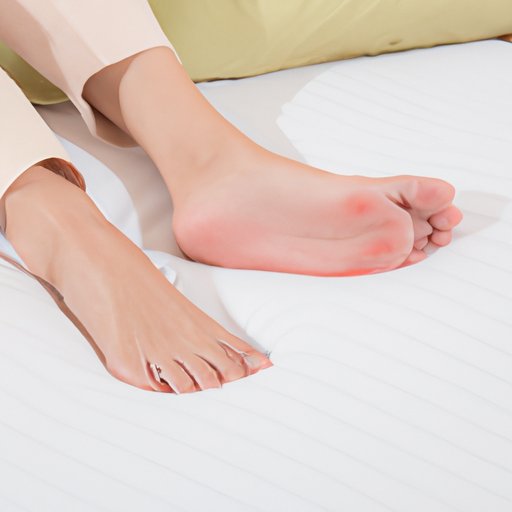Introduction
Bed sores, also known as pressure ulcers or decubitus ulcers, are areas of damage and breakdown of the skin and underlying tissue caused by prolonged pressure. They are a common and serious problem for people who are bedridden or have limited mobility, such as the elderly and those with disabilities. Bed sores can be painful and cause a great deal of discomfort, and can lead to serious complications if not treated properly.
Causes of Bed Sores
Bed sores are caused by prolonged pressure on the skin, which prevents blood from reaching the area and causes the skin and tissue to break down. This pressure can come from body weight, tight clothing, or even from certain medical devices such as casts or braces. Other factors that can contribute to bed sores include friction, shearing forces, poor nutrition, and poor circulation.

Prevention and Treatment of Bed Sores
The best way to prevent bed sores is to reduce pressure on the skin by changing positions often, using cushions and pillows to support the body, and making sure the person is well-nourished and hydrated. Additionally, skin care is important, as regular cleansing and moisturizing can help keep the skin healthy and reduce the risk of bed sores. In some cases, medications such as antibiotics may be necessary to treat existing bed sores.

Risks Associated with Bed Sores
If left untreated, bed sores can lead to serious complications such as sepsis, infection, and bone degeneration. Sepsis, in particular, is a life-threatening condition caused by the body’s response to an infection, and can lead to organ failure and death if not treated promptly.
Common Symptoms of Bed Sores
The most common symptom of bed sores is skin discoloration, usually red or purple. Other symptoms include swelling, tenderness, open wounds, and a foul smell. If any of these symptoms are present, it is important to seek medical attention immediately.

How to Care for a Person with Bed Sores
Caring for someone with bed sores can be challenging, but there are steps you can take to make it easier. First, change positions often to reduce pressure on the affected area. Second, clean the wound regularly to prevent infection. Third, provide nutritious meals and snacks to help the body heal. Finally, be sure to monitor the wound closely for any changes or signs of infection.
The Impact of Bed Sores on Quality of Life
Bed sores can have a significant impact on a person’s quality of life. Pain and discomfort can make it difficult to perform everyday activities, and the financial burden of treatment can be overwhelming. Additionally, living with bed sores can be emotionally stressful, as it can cause feelings of helplessness and frustration.
Conclusion
Bed sores are a common and potentially serious problem for those with limited mobility. To prevent them, it is important to reduce pressure on the skin, ensure good nutrition and hydration, and practice proper skin care. If bed sores do occur, they should be treated promptly to avoid further complications. Finally, caring for someone with bed sores can be challenging, but with the right approach, it is possible to improve their quality of life.


